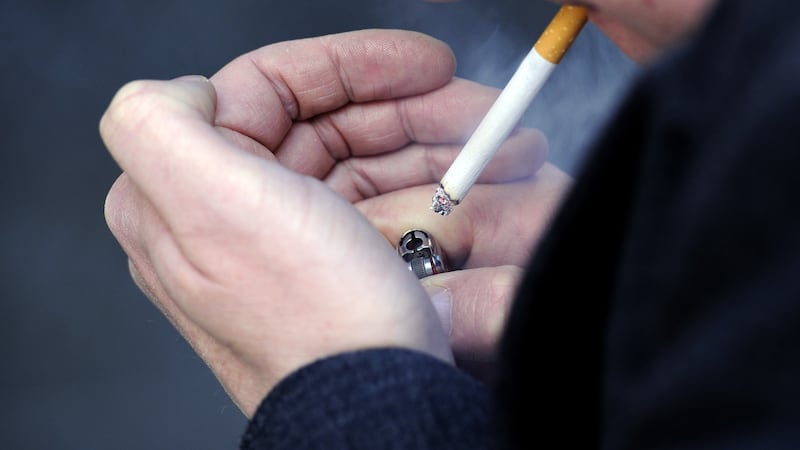I read with interest Luke Moffett’s article (June 6) on the issue of the Victims Payment Scheme. I have previously discussed the issue of a pension payment for victims with Luke on a number of occasions and I recognise the time and energy which he has devoted to it.
Luke refers to a five-week consultation by the NIO on a Payments Scheme for Victims. In this consultation, there was no reference to the eligibility status of those who had served a sentence of two and a half years or more, or of a board to ‘adjudicate’ their ‘appropriateness’ for a payment, or of the concept of ‘material evidence’, which many, including myself, interpret as ‘intelligence’.
The only individuals who faced exclusion from the scheme, as outlined in the consultation, were those ‘injured by their own hand’ and subsequently convicted on the basis of these injuries.
Luke also appears to display a benign and positive view of a board, which has yet to be constituted, and where membership is unknown. He fails to acknowledge the responsibility of Westminster to fund a scheme which they have conceived and legislated for. This is at variance with the views he expressed in a Belfast Telegraph article on February 23, where he stated: “As the scheme covers the whole of the UN (and Europe), it is only right that central government should underwrite the cost.”
In that article, Luke asserts “as the scope of the injury is quite broad, including physical and psychological injury amounting to permanent disablement, this is likely to exclude a number of individuals with convictions, who were also unlawfully harmed. This may be difficult to square with the scheme’s purpose of acknowledgement and reconciliation.” This doesn’t resonate with the view expressed by Luke in The Irish News, where he refers to the scheme as offering “a common ground, where the DUP wanted to include only innocent victims and to redefine the 2006 Victims and Survivors (NI) Order”.
What he refers to as the DUP position is clearly the policy intent of the British government’s Victims Payment Regulations. It is discriminatory in nature, and in contradiction of the policy intent of the Fresh Start Agreement, which referred to “the reintegration of people previously involved in the Troubles”.
How does this serve a common desire for equal citizenship, an end to injustice and the non-recurrence of conflict, and the genesis of the development of a genuine and agreed process of reconciliation?
LINDA DILLON MLA
Sinn Féin, Mid Ulster
We need to embrace and teach the good, the bad and ugly of history
As the debate rages around the removal of statues and as some of that rage has turned into action the real question is – how we as a nation embrace and teach the good, the bad and the ugly of history?
History in schools today is in largely taught through the prism of the victor/oppressor. The defeat of Nazi Germany rarely acknowledges the over three million Indian and African soldiers who fought in support of Britain’s war effort. In addition, the narrative that colonisation/ subjugation was some sort of divine duty to civilise the world. Clearly, plundering and exploiting not just the mineral wealth but the humans of those countries was never the real motivation behind this endeavour.
Great personal wealth was accumulated and great cities were built on the backs of slaves and colonialism. The cotton and sugar plantation also delivered great wealth. Financial institutions emerged to support the activities of the slave trade. Slavery infected every nook and cranny of society. Even the Church of England received compensation to the tune of £500,000 in today’s money under the 1833 compensation scheme. Nowhere are kids taught that when slavery was abolished the slave owners received compensation for their “assets” in today’s money to the tune of £17bn and the slaves received nothing. Slavery is not just America’s original sin but also Britain’s original sin.
At school we learn about the abolitionists such as William Wilberforce but not enough about the exploitation of slaves and how colonisation and the slave trade played a huge part in putting the Great into Great Britain.
The teaching of history is important but must include the good, the bad and the ugly.
SUNEIL SHARMA
Belfast BT6
Outdated symbol of supremacy
THE killing of George Floyd was prevented from becoming just another statistic in a long line of statistics in relation to illegal killings perpetrated by police officers in states across America. The black lives matter campaign galvanised to cry out loudly “enough is enough”. The resulting protests spread to western democracies. This movement for change also illuminated a few inconvenient truths and uncovered unsavoury and unpalatable facts on figures from the history of the Empire. The statue of Edward Colston, the 17th century slave trader, was ripped from its plinth.
Unfortunately, there are similar monuments littered across Ireland which invoke feelings of resentment and exclusion. These draw parallels on divisive figures of our own recent/distant past. One such statue which stands proudly cultivating an air of exclusivity is that of Edward Carson in the grounds of Stormont.
While Carson did not advocate discrimination, his successors behaved dreadfully and adopted policies of prejudice. Would it not be prudent in the interests of fairness and equality to banish this nostalgic, outdated symbol of supremacy?
KEVIN McCANN
Belfast BT1
Green world is way forward
As Governments around Europe plan their way out of this Covid-19 pandemic, they are thinking of a new normal, a new world, a green world.
In my opinion this is the way forward. As our economy is shattered, mental health issues on the rise and unemployment about to soar now is the time for dynamic leadership, new thinking that will take us to a brighter future.
To get to that future, let’s look to the past. As part of his new deal President Franklin D Roosevelt set up the Civilian Conservation Corps which helped to shape America’s national and state park systems.
This is the type of thinking we need from our executive.
During this pandemic, I noticed the number of people walking and cycling along our quickly disappearing countryside, with no proper walking or cycling paths.
Nichola Mallon in a recent announcement said she was setting up in her department a walking and cycling champion. I suggest that there is no better place to start than the Carlingford Lough area of outstanding natural beauty.
This can be a start to our new normal, creating jobs, promoting tourism and enhancing healthy living.
This is possible, our executive are capable but are they willing.
JAMES BOYLAN
Warrenpoint, Co Down







